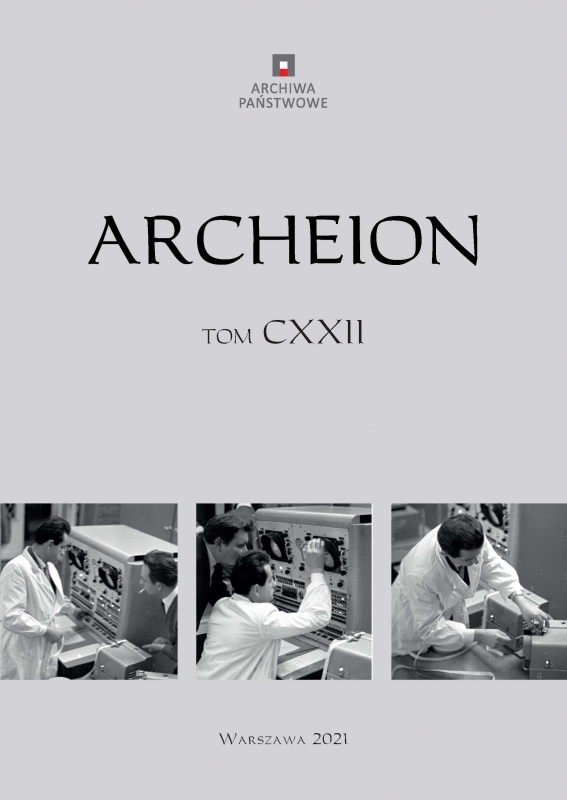System elektronicznego zarządzania dokumentacją EZD PUW a wewnętrzne normatywy regulujące zarządzanie dokumentacją w jednostkach administracji samorządowej i rządowej w terenie (2011–2021). Wybrane aspekty
The EZD PUW electronic records management system vs. internal norms governing records management in local and state government units in the field (2011–2021). Selected aspects.
Author(s): Marcin SmoczyńskiSubject(s): Electronic information storage and retrieval
Published by: Wydawnictwo Uniwersytetu Jagiellońskiego
Keywords: public administration; electronic records management; Podlaskie Voivodship office; EDM class information systems;
Summary/Abstract: The article is a report from a survey concerning operation of the Podlaskie Voivodship Office’s Electronic Documents Management system (hereinafter: EZD PUW), which is the second most implemented EDM-type system in public administration in Poland. The aim of the survey was to determine how the implementation of EZD PUW affects the operation of the Office’s registry, the workflow of documents and procedures for handling and documenting cases. The text comprises an introductory part, a discussion of the method of collecting and analysing source materials, and a presentation of the results divided into two perspectives – for the offices that indicated the traditional system as their primary method of documenting the course of handling and resolving cases, and for those offices that recognized the EDM system as their main documentation management environment. The survey covered 163 offices of self-government and government administration units, which implemented the EZD PUW system in 2011–2022. The group included 133 Municipal Offices (urban, rural and mixed), 32 County Offices, 13 Voivodship Offices and five Marshal’s Offices. The author analysed responses to a survey addressed to the selected offices, as well as the internal regulations, provided by the respondents, determining procedures for management of electronic records, supplementary to the basic office and archival manuals required by law. The survey revealed lack of uniformity of internal regulations regarding the implementation of the EZD PUW system and its operation in individual offices, both in case of implementation of fully electronic document workflow and in case of hybrid solutions. According to the researcher, such diversity of solutions translates into heterogeneity in the operation of offices themselves as well as in the documentation of their activities. According to the author, such a situation is undesirable in the field of public administration operations. Two main reasons for this state of affairs were indicated. The first is the applicability of the 2011 framework state regulations governing the organization of clerical work in public administration in Poland, which are not adapted to the current electronic office solutions. The second is the supervision policy on the part of the state archives with regard to the growing archival resource, inadequate to modern needs of an electronic chancellery. There are two appendices to the article, containing lists of internal regulations affecting the handling of records. Changing legal regulations, development of new, but disparate tools supporting records management, as well as the growing volume of electronic documentation produced, among other things, have made it necessary for state archives to develop appropriate methods for conducting archival audits. The purpose of this article is to assess the granularity of data regarding electronic records management, including electronic records produced and collected, as reflected in protocols from archival audits. Changes in the scope of logged data will also be addressed. Year 2011 was chosen as the starting point – it marks entry into force of the Prime Minister’s Ordinance of January 18, 2011, which defined the EDM system and regulated the possibility of electronic documentation management in consolidated government administration bodies on the voivodship level, voivodship self-government bodies, county bodies, bodies of municipalities and inter-municipal unions, as well as offices serving such bodies. Year 2019 is not the expiration date for the regulation itself, but due to the outbreak of the COVID-19 pandemic, which arguably changed the landscape of the Polish archival foreground, it was considered an appropriate concluding point for the article.
Journal: Archeion
- Issue Year: 2022
- Issue No: 123
- Page Range: 1-34
- Page Count: 34
- Language: Polish

